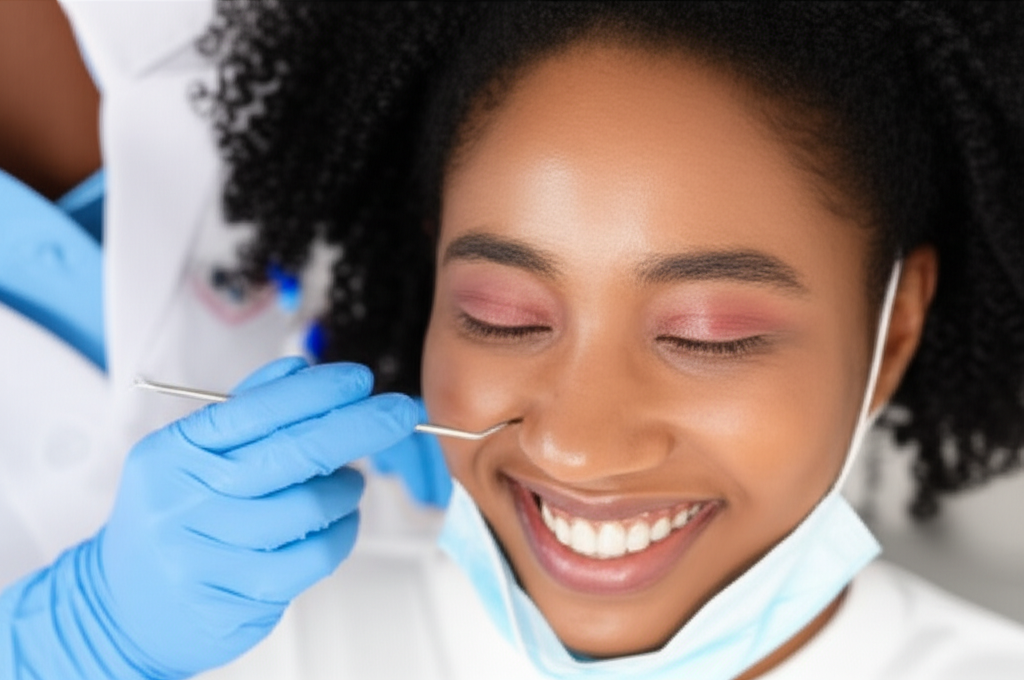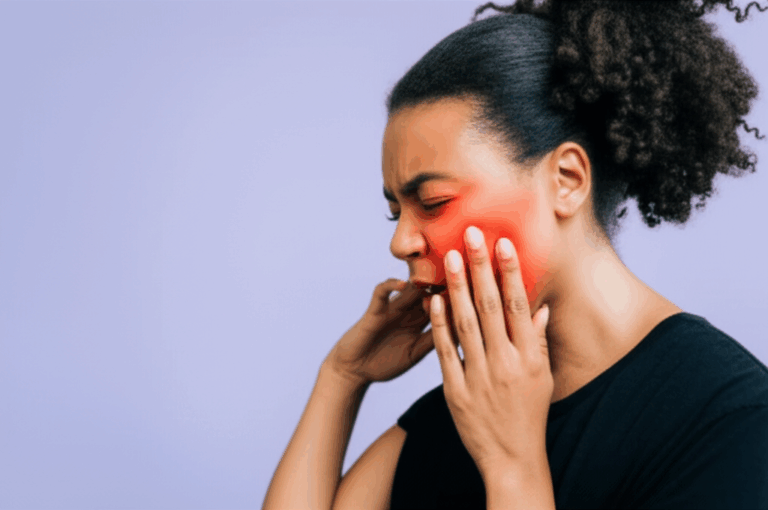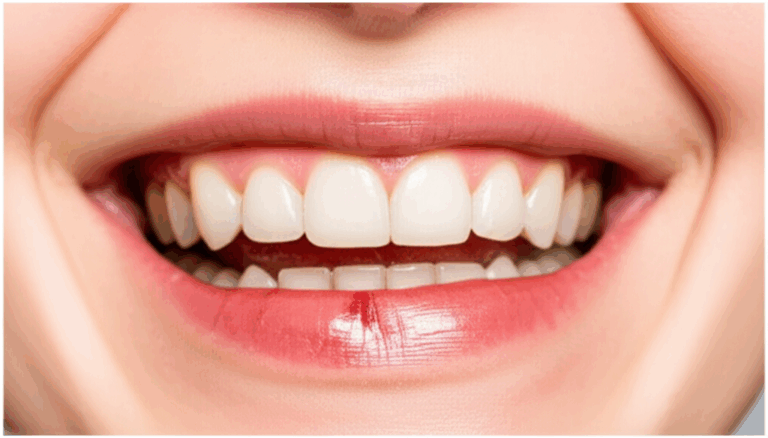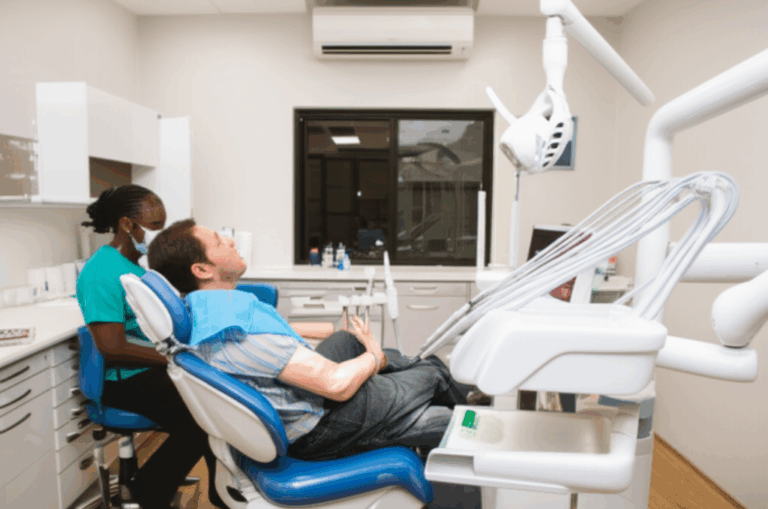
From Dental Hygienist to Dentist: My Experience and Complete Guide
Table of Contents
- Clinical Skills
- Patient Communication Abilities
- Chairside Confidence and Professional Network
- Lasting Motivation
- ADEA AADSAS: The Centralized Application
- Crafting My Story: Personal Statement and Recommendations
- Gaining Extra Experience: Shadowing and Volunteering
- Prepping for Interviews
Introduction: Can a Dental Hygienist Really Become a Dentist?
Have you ever thought, “Can a dental hygienist become a dentist?” Here’s the simple answer: Yes, you can—but don’t think it’s quick or simple. I started out cleaning teeth, teaching people how to brush better, and always watched the dentists, wishing I could help more. I liked being a hygienist for a while. But eventually, I got a little tired of only being able to do so much for patients. I wanted to decide on treatment, fix the tougher problems, and really change patients’ health.
Switching from being a hygienist to being a dentist taught me: it’s possible, and your hygiene background helps. But it will take a lot of time, patience, money, and being ready to be a student again—sometimes with classmates much younger than you. Along the way, I figured out what classes I needed, how to make my application stand out because of my work, and what surprised me.
If you’re dreaming of the same thing, I’ll show you the exact steps I took, what went well, what was tough, and how hygiene actually gave me a real boost.
Understanding Dental School Admission Requirements
Academic Prerequisites
First, dental schools need to know you can do tough science classes. Usually, that means having a bachelor’s degree. If you already got your bachelor’s in dental hygiene, you’ve done a big part of it. Just know—some hygiene programs don’t have all the science classes that dental schools require.
For me, my hygiene degree had anatomy, physiology, and microbiology, but I still needed basic and organic chemistry, biology, and physics (with labs). Some schools wanted biochemistry, statistics, or even English composition too. Having a decent GPA, especially in science (what’s called your “sGPA”), was a big deal. Most dental schools want students with higher than a 3.3, or even more.
What I learned: Even if you have a health degree, check every school’s list. Sometimes you need to take extra classes at a community college or after you graduate.
The Dental Admission Test (DAT)
This is where I got really nervous. The DAT is a long, tough test that has natural sciences, a skills part, reading, and math. I was scared, since I hadn’t done chemistry or hard biology in years.
So, I spent months studying. I used books, practice questions, and timed tests. My target was at least a 20 on the main parts, since that’s what lots of schools want. Some schools share their average DAT scores, and I made those numbers my goal.
My advice: Study for the DAT like it’s a real college class. Set a clear plan, use different tools, and don’t cram it all in at once. Your DAT score can make or break your application.
How My Hygienist Experience Gave Me an Advantage
I didn’t know my time as a dental hygienist would make my application stronger. But at interviews and when writing my essay, I leaned on my clinical work—and it really stood out to the people reading my file.
Clinical Skills
Because I spent years in the office, I already knew the basics—mouth anatomy, what sick gums look like, how to keep everything super clean. When classmates were first trying out tools or meeting patients, I felt okay. I was good at spotting gum disease and could talk through treatment, which helped a lot in labs.
Patient Communication Abilities
I thought talking to nervous patients was just part of my work. Later, I realized this was something special. Explaining stuff in simple words, connecting with people, and helping worried patients calm down—those were things I did all the time thanks to hygiene.
Chairside Confidence and Professional Network
I was used to being in the office, handling busy days, and working with a team. I’d met lots of dentists and specialists who helped me out with my application and let me watch them work. Their letters and tips made getting in much easier.
Lasting Motivation
Being a hygienist proved that dentistry wasn’t just an idea for me—it was something I really wanted. All the late-night studying and extra volunteering just proved to myself (and schools) that I was ready for more.
Applying to Dental School: My Step-by-Step Approach
Moving from hygiene to dental school comes with a bunch of steps. Here’s how I did it.
ADEA AADSAS: The Centralized Application
Almost every dental school in the U.S. uses the ADEA AADSAS portal (the big online form for applications). This site pulls together everything: your grades, test scores, reference letters, and more. In my case, I sent transcripts for both my dental hygiene degree and all my extra classes.
Crafting My Story: Personal Statement and Recommendations
Writing the personal essay was tough. I explained exactly why I wanted to do more, how hygiene made me different, and what I’d learned from my years in clinics. Be honest—admissions people can spot fake stories.
For letters, I picked science teachers, dentists I worked with, and clinic bosses. Their letters meant a lot and really showed I was serious.
Gaining Extra Experience: Shadowing and Volunteering
Even though I already worked in dentistry, I still shadowed other dentists (like surgeons and kids’ dentists) and made time for volunteer clinics. Some schools wanted proof of 100+ hours. Volunteering not only helped my application, but it reminded me why I was working so hard.
Prepping for Interviews
Dental school interviews come in two main styles: regular and MMIs (where you move from room to room with different questions). I practiced both. I used real stories from work to answer questions about handling patients, tough moments, and working with others.
What to Expect in Dental School: The Honest Truth
Four Years of Intense Training
Dental school is not easy. It’s four years—full of classes, labs, and working with real patients. Even after years as a hygienist, jumping into things like numbing shots or filling teeth was a challenge.
The Curriculum
The first two years are a lot of classroom work—subjects like chemistry, medicine, drugs, and how mouths work. There’s also lots of time in the lab. Some classmates had never held a dental tool, so my experience gave me an edge.
The last two years, you mostly work with patients, watched by teachers. This was new, since now I had to choose the treatment plan, not just do what the dentist ordered.
Exams and Licensure
To get my license, I had to pass national written tests (like the INBDE or NBDE) and a hands-on state or regional test. Every state has small differences, so check the rules if you know where you want to practice.
Balancing Life and School
Keeping up with classes, homework, life at home, and stress was hard. Some classmates with kids or partners really struggled to balance it all. If you want to work part-time, know that it adds a lot of stress. Taking care of yourself is really important.
Facing the Challenges: My Real Perspective
Time Commitment
If you want to start dental school soon, know that it takes a while. Most hygienists, like me, spent another year (or more) finishing missing classes, studying for the DAT, and getting the application ready. That’s before the four years of school.
For me, from starting the plan to graduating, it was about six years.
Financial Planning
Let’s talk about money. Dental school is expensive. The American Dental Education Association (ADEA) says it can cost $200,000 to $400,000, not counting living costs. I hit somewhere in the middle.
I got advice from money aid people, budgeted everything, and tried for scholarships whenever I could. The loans looked scary, but after looking at how much dentists can make over time, it felt worth it.
Academic Rigor
Even with office skills, I didn’t realize how tough the bookwork would be. The classes are hard. Tests are frequent and cover everything. Other hygienists I met did great working with people, but some needed help with science. It’s okay to ask for help or work with a study group.
Being a Non-Traditional Student
I’ll be real: most of my classmates were a few years younger. That was weird sometimes, but my patient care and maturity turned out to be good things. Teachers liked that I had real-world stories. If you’re nervous about being “older,” remember—schools value your life experience.
The Rewards: Why I’d Do It Again
Scope of Practice and Earning Potential
Now I could diagnose, pick treatments, and do all kinds of dental work. The pay was much better; the Bureau of Labor Statistics says dentists usually make about double what hygienists earn. I could even run my own office, lead a team, and pick how things worked. If you want more freedom, being a dentist makes a huge difference.
Professional Growth and Fulfillment
The work was interesting every day—sometimes fixing teeth, sometimes helping somebody feel better about their smile, sometimes learning something new. There’s always something to learn, new training courses, or new tools. For example, when I learned how labs worked in detail—like what happens in a crown and bridge lab—I got a lot more respect for everyone in the dental field.
Other Advanced Roles for Dental Hygienists
Not everyone wants to be a dentist, and that’s okay. If dental school isn’t for you, there are other ways to grow:
- Get a master’s in dental hygiene and teach new hygienists.
- Try public health—some states let you do expanded duties in places that need care.
- Work as a coordinator or teacher in a hygiene program.
- Move into dental sales, teaching, or consulting.
Some of my friends picked these careers and liked shaping the future of dental care—without the time or money required for dental school.
Comparing a Dental Hygienist and Dentist: Data and Insights
Here’s a simple side-by-side table to help you think about what each job means.
| Feature / Metric | Dental Hygienist (Average) | Dentist (General, Average) |
|---|---|---|
| Education Level | Associate’s/Bachelor’s Degree | DDS/DMD (Doctoral Degree) |
| Average Annual Salary (US) | $81,390 (2022) | $163,220 (2022) |
| Dental School Duration | N/A | 4 years post-bachelor’s |
| Cost of Dental School (US) | N/A | $200,000–$400,000+ |
| DAT Score (Accepted Students) | N/A | 20–21 Academic Average |
| Acceptance Rate | N/A | ~5-10% |
| Student Debt (Average) | $0–$50,000 (if at bachelor’s or master’s) | $300,000–$500,000 |
| Job Outlook (10 Years) | 7% growth | 6% growth |
| Skills & Scope | Cleaning teeth, patient teaching | Diagnose, fix teeth, own practice |
| Transferable Skills | Talking to patients, keeping things sterile, patience | Using skills, leading, planning care |
Seeing this info helped me face the facts: money, time, and hard work. I talked honestly with people who had done it before, and it helped me know if I was really ready for this move.
Is This Dental Journey Right for You? My Honest Advice
Still asking yourself, “Should I do it?” Here’s my plain advice.
Going from hygienist to dentist is not for everyone. The years in school, the cost, and the hard classes should make anyone think twice. If you feel excited at the idea of solving tricky dental problems, being in charge, or running your own place, then this is a great way forward. My time in hygiene actually made me a better student and, now, a better dentist.
Before you start, talk to students, find mentors, shadow in different offices, and be super honest about why you want this. Use your campus’s pre-health advisors for advice.
Whatever path you pick, use your strengths—your history matters. If you stick with it, keep thinking about what kind of impact you want to make. That future will help during the toughest times.
That’s how I made the jump. It wasn’t quick, easy, or cheap—but for me, it was worth it.
Want to know more about dental care and what happens in the dental lab? Check out these helpful posts: dental care and the work in a dental ceramics lab.
Remember: You’re not just changing jobs—you’re changing your career, your skills, and how you help people. Good luck if you make the jump!








